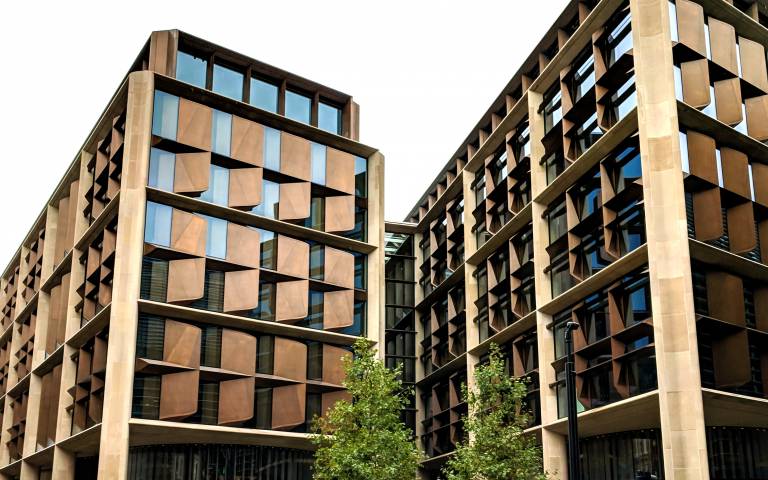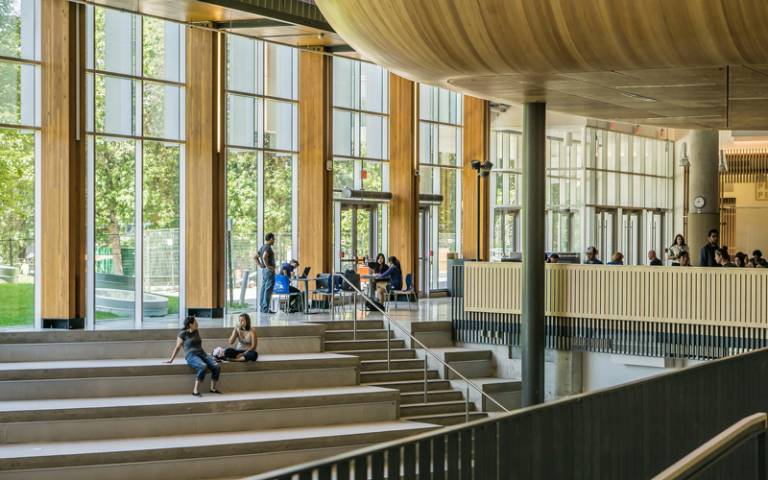Energy use, retrofit and net zero

Upgrading our buildings through retrofit will be at the cornerstone of the green-economic recovery and a key priority of global climate action, this theme therefore also looks at the application of new methods and approaches to accelerate and future-proof the crucial retrofit challenge in the UK and beyond. Modelling and monitored data are used to investigate the impact of various energy efficiency measures on energy consumption and environmental performance. As economies move away from the use of fossil fuels for heating and cooling, system upgrades such as the adoption of heat pumps are also studied. High performance approaches such as Passivhaus and adaptation measures to limit indoor overheating in a warming climate, are also investigated.
This work is vital in supporting the transition towards net-zero carbon whilst maintaining and promoting healthy indoor environments. Whole building retrofit coupled with the provision of renewables makes carbon positive buildings possible, helping to off-set harder to decarbonise sectors.
It is important that building retrofit is performed without compromising the indoor environmental quality of buildings, avoids unintended consequences and remain resilient in the face of future challenges. A systems thinking approach is adopted in line with the ethos of IEDE. It is important that the transition to net-zero is equitable and inclusive.
Jump to: Research areas | Case studies | Recent Projects | In teaching | Researchers
Research areas
Optimal retrofit design

This research area seeks to assess and identify optimal retrofit solutions for buildings and the building stocks. Evolutionary and other algorithms are used to optimise retrofit design considering uncertainty and robustness across multiple output metrics. These metrics include various parameters such as energy use/carbon, indoor environmental quality, and costs.
Building stock modelling

This research involves assessment of the impacts of retrofits across building stocks. Both domestic and non-domestic (e.g. schools) models are employed to investigate impacts across the population. Within the work, many scenarios may be tested under various retrofit and climate projections.
Recent projects
Our research has involved a wealth of strategic projects in decarbonising the built environment through retrofit including the assessment of roll-out schemes, novel solutions, fuel poverty alleviation, health impacts and unintended consequences of decarbonisation.
Examples of our projects:
- Advancing School Performance: Indoor environmental quality, Resilience & Educational outcomes (ASPIRE)
- ClimaCare
- Complex Urban Systems for Sustainability and Health (CUSSH)
- Health Protection Research Unit (HPRU)
- Human health in an increasingly urbanised and warming world
- Policy and Implementation for Climate & Health Equity (PAICE)
Energy use, retrofit and net zero in teaching
Our teaching in this area focuses on establishing a sound understanding of the energy consumption of our buildings and how to improve it. We aim to introduce future designers and practitioners to the methods, practice and consequences of retrofit, building their expertise in how retrofit is designed and deployed at various scales.
Environmental Design and Engineering MSc

Our flagship MSc degree aims to equip students with the knowledge to tackle increasingly critical issues regarding the built environment and expertise in the design of more energy efficient, sustainable and healthier buildings.
Relevant modules:
Examples of past dissertation titles:
- 'Reversible retrofit: design for deconstruction applied to solid brick wall thermal insulation'
- 'Retrofit assessment on Hard to Decarbonise Homes: economic feasibility of measures and their robustness to climate change'
- 'Multi Objective Optimisation for the minimisation of Life Cycle Carbon Footprint and Life Cycle Cost using NSGA II: A Refurbished High-Rise Residential Building Case Study'
Health, Wellbeing and Sustainable Buildings MSc

This Masters programme aims to drive the health and wellbeing agenda for human centred retrofit design. It helps to train a new generation of partitioners in this fast-growing field where they will understand the main impacts of retrofit on indoor environmental quality.
Relevant modules:
- Health, Comfort and Wellbeing in the Built Environment
- Integrated Building Design for Health and Wellbeing
- Indoor Air Quality in Buildings
Examples of past dissertation titles:
- 'Creating healthy workplaces: A future-fit approach to retrofit'
- 'Housing overheating mitigation: The role of Building Regulations'
- 'Modelling temperature exposure in indoor environments occupied by people with epilepsy'
Doctoral Research (PhD)
IEDE PhD research within this area includes cutting edge research in the areas of Energy and Buildings; Building Stock Modelling; Environmental Policy and Performance. Our PhD researchers are working across diverse topics such as:
- Fady Abdel Aziz: A multi-objective optimization model towards an energy efficient housing stock in new cities in Egypt
- Cheng Cui: A robust and efficient optimisation framework towards heat resilience in retrofitted dwellings
- Amr Hamada: Retrofit strategies for public administrative buildings in Egypt
- Kubra Doguc: Retrofit of Hospital buildings: Investigating life cycle performance of hospital building refurbishment through low carbon measures: An integrated methodological framework
- Guokai Chen: Control Rule Extraction in the HVAC system with Model Predictive Control
- Simon Vakeva-Baird: Combining building dynamic simulation with multi-criteria decision-making methods for a participatory design framework for net-zero carbon buildings
- Salam Al-Saegh: Occupant behavior and the design of district energy networks for a zero-carbon future
- Yuhong Wang: Collaborative Decision-making in Community Co-design of Urban Greenspace Regeneration, an Analysis of a Complex Network and System
- Athina Petsou: Rethinking retrofit: putting users in the center in order to reduce energy and unintened consequences
- Alex Fung: Timeless Digital Twins for the Energy Health Nexus
- Zoe Xie: Physics-informed Machine Learning Modelling for Multi-scale Building Energy Systems with Enhanced Accuracy and Interpretability
- Joanna Xie: Cognitive Digital Twins for Adaptive Smart Building Energy Management
- Noorfazlenawati Mohamad Nor Azli: The development of a multi-objective optimisation tool in assessing future Building Energy Intensity (BEI), cost-benefit and payback in Malaysia
- Alexander Walker: Systems thinking in the built environment
- Jingfeng Zhou: Cost-benefit analysis of achieving net zero targets across the UK hospitality sector
- Marios Kordilas: Dynamic Holistic Life Cycle Assessment: Integrating Embodied and Operational Carbon, Energy, Water and wider ecosystem impacts
- Zoe Xie: Physics-informed Machine Learning Modelling for Multi-scale Building Energy Systems with Enhanced Accuracy and Interpretability
Researchers
Minnie Ashdown
Research Fellow
minnie.ashdown@ucl.ac.uk
Oscar Brousse
Researcher
o.brousse@ucl.ac.uk
Dejan Mumovic
Researcher
d.mumovic@ucl.ac.uk
Esfandiar Burman
Associate Professor
esfand.burman@ucl.ac.uk
Dzhordshio Naldzhiev
Post Graduate Teaching Assistant
dzhordzhio.naldzhiev.16@ucl.ac.uk
Ben Croxford
Professor
b.croxford@ucl.ac.uk
Rokia Raslan
Associate Professor
r.raslan@ucl.ac.uk
Nishesh Jain
Research Associate
n.jain@ucl.ac.uk
Yair Schwartz
Research Associate
yair.schwartz@ucl.ac.uk
Charles Simpson
Research Fellow
charles.simpson@ucl.ac.uk
Wenzhuo Li
KTP Research Associate
wenzhuo.li@ucl.ac.uk
Samuel Stamp
Teaching Fellow
samuel.stamp@ucl.ac.uk
Phil Symonds
Lecturer
p.symonds@ucl.ac.uk
Anna Mavrogianni
Researcher
a.mavrogianni@ucl.ac.uk
Sung Min-Hong
Lecturer
s.hong@ucl.ac.uk
 Close
Close

